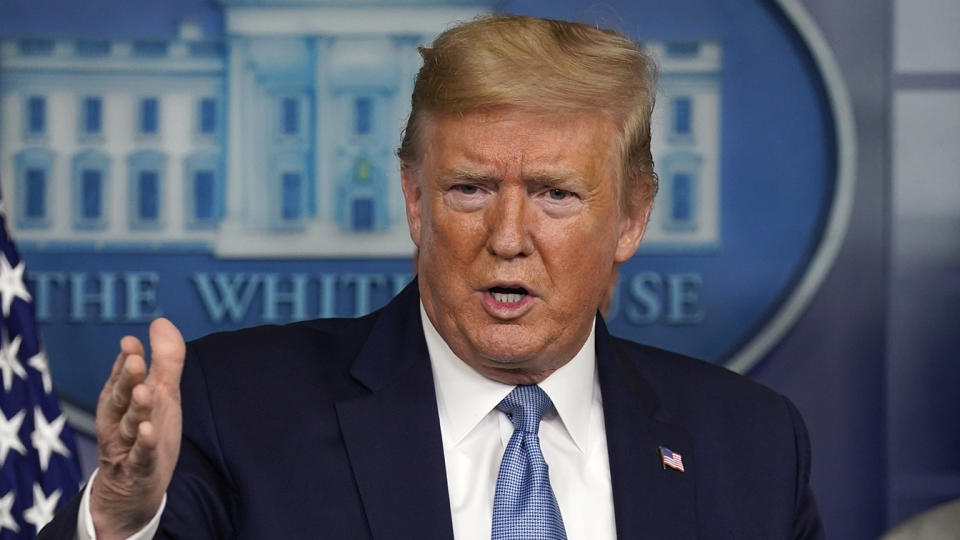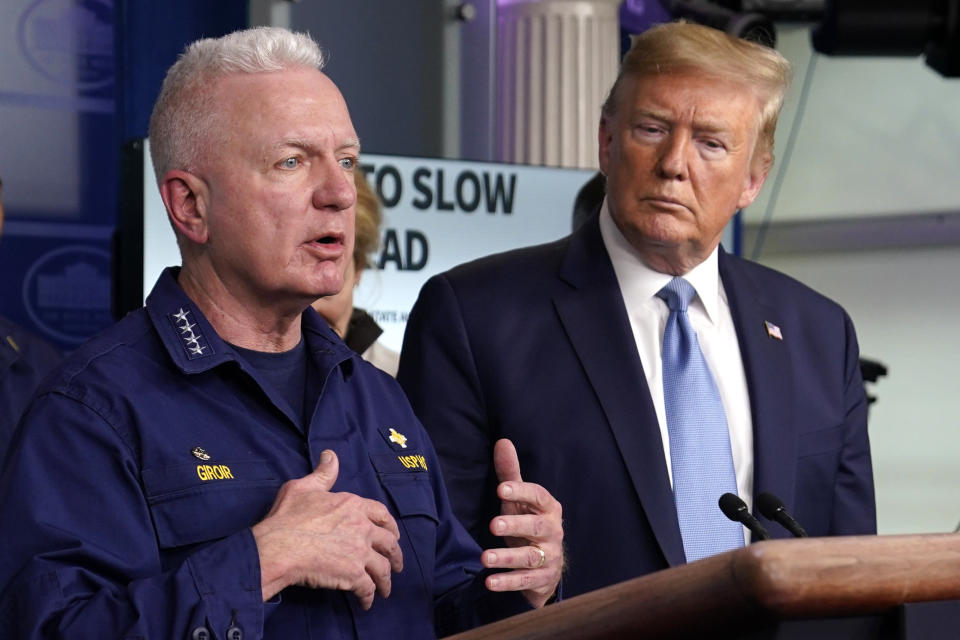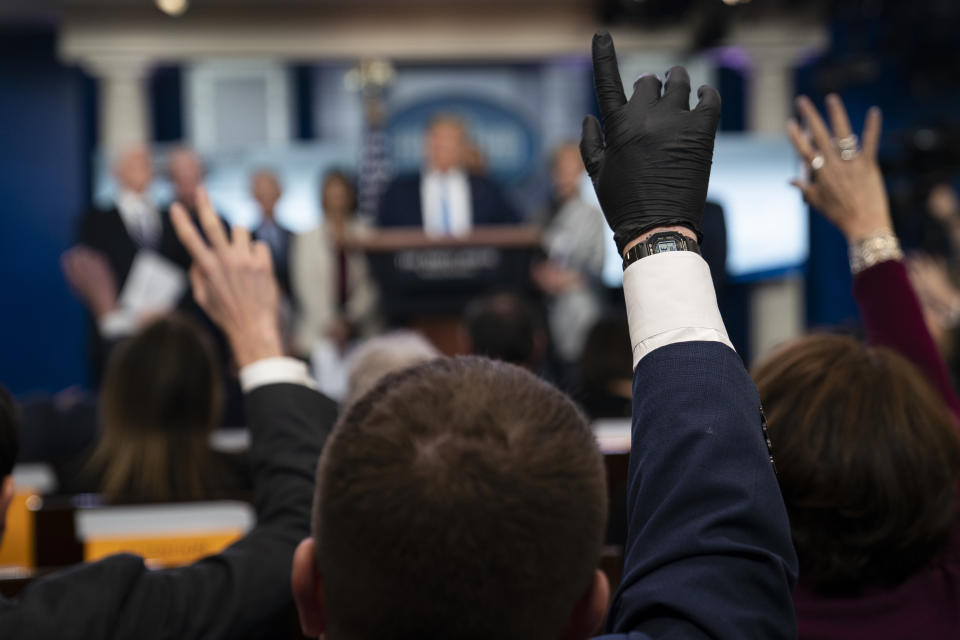Trump says coronavirus pandemic could bring on a recession
WASHINGTON — As much of the nation went into lockdown mode, President Trump promised a months-long effort to combat the coronavirus pandemic, which he called an “invisible enemy” with an astonishing capacity to sicken and kill. It was a stark departure from the president’s assertions early in the outbreak that the virus was no worse than the common flu and would go away on its own.
Asked whether the country was heading for an economic recession, the president said “it may be,” although he also said he expected the economy to recover quickly once the health emergency passes.
But that could some time from now. Trump’s remarks at a White House press briefing, where reporters were seated in staggered rows to keep their distance, prepared the nation for months austere measures. “They think August, it could be July, could be longer than that,” he said, speaking of what experts had been telling him.
Asked by a journalist what he had been telling his young son Barron, the president put things simply: “It’s bad. It’s bad.”
To that end, Trump administration officials are calling for an intensified response to last two weeks. If that is adhered to by the majority of the American population, they believe, the United States could evade a catastrophe similar to the one now unfolding in Italy and other countries.
“If everyone makes this change or these critical changes and sacrifices now, we will rally together as one nation and we will defeat the virus,” Trump said. He called for people to not gather in groups of greater than 10, asked for all schooling to take place in the home and for non-essential travel to be limited.
Those recommendations are part of new guidelines issued on Monday by the White House, “15 Days to Slow the Spread.”

Trump, who rated his response to the coronavirus at a “10,” distanced himself from remarks on Fox News by his close ally Rep. Devin Nunes, R-Calif., who had urged Americans to patronize restaurants. Prompted by questions from a reporter, Trump said those comments were “adverse to what the professionals are saying.”
And in a truly uncharacteristic move, he praised members of the media, whom he has in the past derided as “enemies of the people.” Now he and others see them as essential messengers of public health directives.
“I think a lot of the media actually has been very fair,” Trump said. “I think people are pulling together on this. I really think the media has been very fair.”
It was the president’s fourth day in a row speaking from the White House, in a sign of how seriously the administration is now taking the epidemic that has sickened 4,200 and killed more than 70 Americans. Public health officials are racing to implement a nationwide coronavirus testing regime, which has been slow to get going. A Massachusetts company on Monday began human tests on a coronavirus vaccine, but it will take months — likely a year or more, experts have predicted — before a vaccine is available to the public.
Communities have responded by directing people to retreat from virtually all aspects of public life. Schools have closed around the nation. Trains run less frequently. Libraries are shuttered. The lights on Broadway have grown dark.
The widening lockdown has had a predictably adverse effect on the financial markets, which opened the week with a steep dive. The Dow Jones Industrial Average, whose record-setting performance had been a regular subject of Trump’s boasts over the last several years, is now within a few hundred points of where it was when Trump took office. Drastic measures taken the previous day by the Federal Reserve have, so far, not had their intended calmative effect.
Trump acknowledged that there were greater worries than the Dow Jones at hand. “The market will take care of itself,” he said, once the virus itself is defeated.
Victory over the coronavirus, however, may yet be months away. For now, testing people for infection is public health officials’ main goal. Knowing who is sick is the easiest way to prevent sickness from spreading.

Speaking at a Monday press conference, Assistant Secretary of Health Brett Giroir, who has been placed in charge of the testing facet of the coronavirus response, said that “we’re really entering a new phase of testing.” He said with private laboratories and diagnostic companies working in concert, about 1.9 million tests will be deployed by the end of the week. Officials had promised last week that 1.5 million tests would be available by today, but delays have prevented that promise from being realized.
The new CDC guidelines are intended to keep the disease from spreading while tests are being manufactured and distributed.
“If you are sick, no matter who you are, please stay home,” said Dr. Deborah Birx, an HIV/AIDS expert who his part of the White House coronavirus task force. Birx noted that young people, who may not become sick themselves, could pass on the virus to older Americans, who could subsequently die from COVID-19, the disease caused by the coronavirus.
“We're protecting the ‘greatest generation’ right now,” Birx said. At one point, she referenced her efforts during the 1980s to fight HIV. “The HIV epidemic was solved by the community,” she said.
“We are asking that same sense of community to come together and stand up against this virus,” she added a little later. “And if everybody in America does what we ask for over the next 15 days, we will see a dramatic difference” in the spread of the disease.

_____
Read more from Yahoo News:



